Bangladeshi umpires scaling new heights
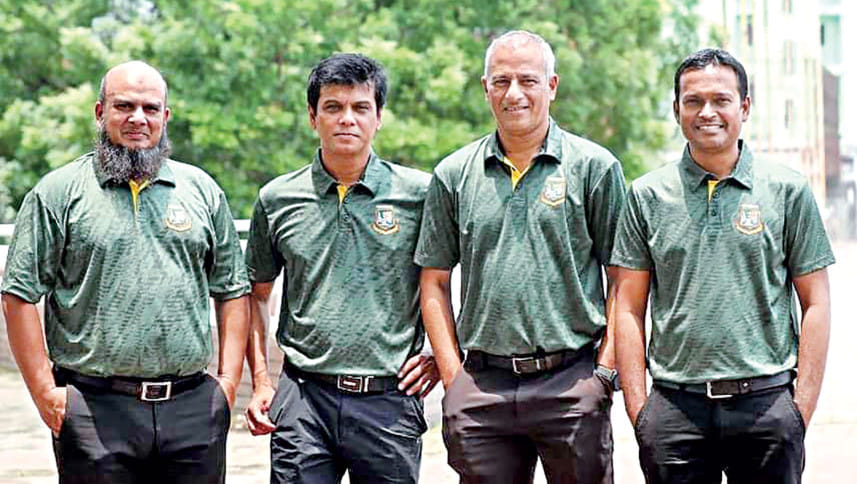
Although the Bangladesh cricket team's performances on the field have hogged the limelight over the years, an another important aspect of the game that has remained overshadowed is umpiring.
For a long time, the general consensus was that a lack of quality was the reason why Bangladeshi umpires were unable to make it to the International Cricket Council's (ICC) elite umpires panel, but things started to change following the Covid-19 outbreak in 2020.
Faced with that challenge, the ICC decided to have local umpires officiate international matches during bilateral series, which proved a blessing in disguise for Bangladeshi umpires, giving them a chance to showcase their ability on the international stage.
Four umpires from each Test-playing nation represent the ICC international umpires panel. Sharfuddoula Ibne Shahid Saikat, Gazi Sohel, Mausudur Rahman Mukul and Tanvir Ahmed are Bangladesh's representatives among those 48 total members in the panel. Another Bangladeshi umpire and former cricketer, Morshed Ali Khan Sumon, is also in line to get into the ICC's international panel.
The ICC also has an emerging panel of umpires that consists of six to seven umpires included among the 48. They are kept as backups for the elite panel of umpires, to be upgraded in case of a vacancy in the elite panel or if an umpire retires from duty.
Despite the fact that there are no Bangladeshis ICC's elite panel list that consists of eleven umpires from across the world, the recent displays by Bangladeshi umpires in bilateral series has had a positive impact in the ICC and bred optimism that a Bangladeshi umpire could find a place in the elite panel in future.
While many may believe that umpiring is judged only on decision-making, that actually only accounts for 25 per cent of the marks that an umpire may receive. The other 75 per cent come from other criteria such as the feedback from the match referee, players and coaches reports, ability to manage the match, English-language proficiency and the ability to handle critical situations on the field.
"I think we were able to portray a positive image because the Bangladeshi umpires did really well in the last seven series after getting the opportunity during Covid-19. Since we don't have any umpires in the elite panel, the ICC sent one elite panel umpire for Test matches during that period in line with their Covid-19 criteria for umpires' appointment," Gazi Sohel said.
"Saikat bhai was the on-field umpire and I was there as TV umpire for all four Tests. Apart from that, the Bangladeshi umpires officiated all the ODIs and T20Is. The ICC was impressed by our performances and we would get emails from the ICC praising us and congratulating us. After the home series against Australia, the Australian team manager, just after returning, sent an email and expressed satisfaction over the umpiring. He said that the umpiring in the series was outstanding. Our decisions were correct nearly 92 per cent of the time, which is interestingly the highest in world cricket over the last two years.
"So we were able to reach that level successfully, which is the reason ICC started to count on us. Previously the ICC used to prefer only the number one umpire from Bangladesh. But nowadays they are also giving opportunities to number two and three as well."
Those qualities coupled with the personality of Bangladeshi umpires caught the eyes of the ICC and Bangladeshi umpires are now getting opportunities to officiate the ICC's global events.
Saikat previously had the opportunity to officiate the ICC Women's World Cup earlier this year while Mukul and Sohel were appointed to officiate the ICC Under-19 World Cup in the West Indies.
Recently, Sohel returned from Zimbabwe, where he was the only umpire from Asia and Europe to officiate in the just concluded ICC T20 World Cup qualifier B round. He also officiated in final game of the event.

 For all latest news, follow The Daily Star's Google News channel.
For all latest news, follow The Daily Star's Google News channel. 

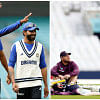
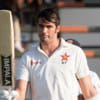
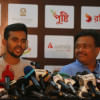

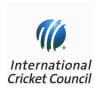


Comments